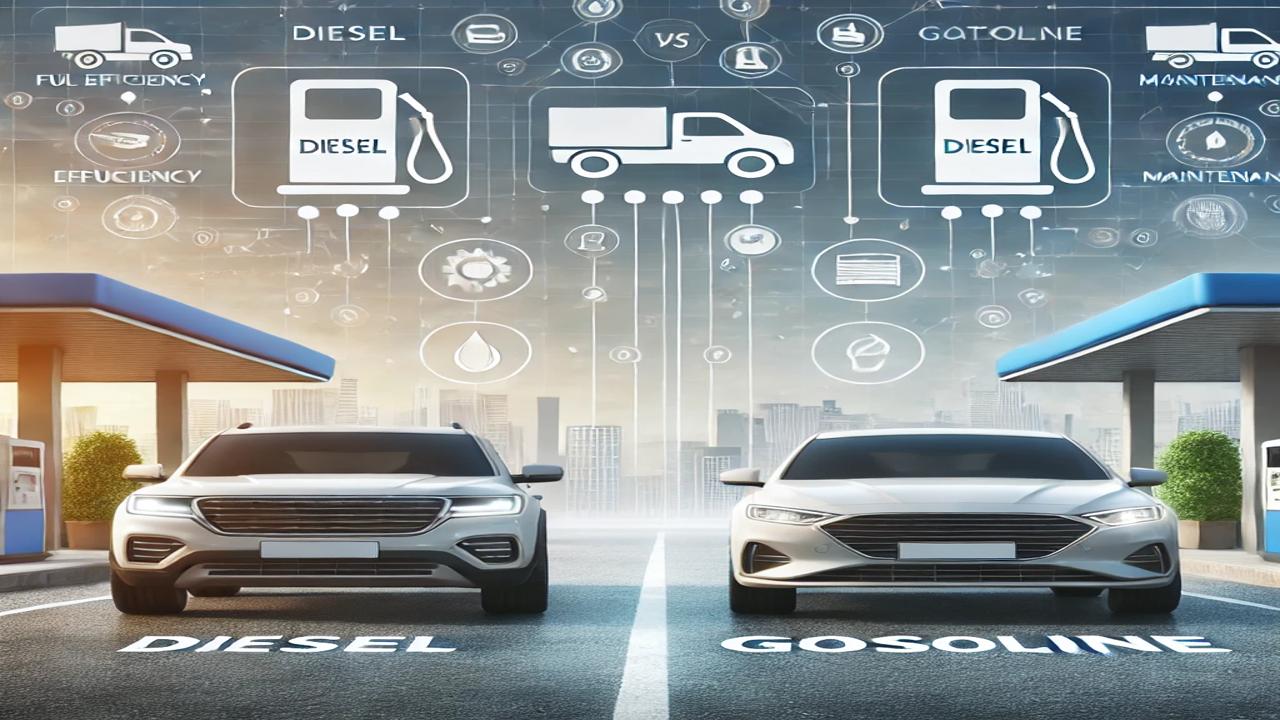Diesel vs. Gasoline Cars: Which One Is Right for You?

When considering buying a car, understanding the differences between diesel and gasoline engines can help determine which type of vehicle best suits your needs. Diesel and gasoline vehicles each offer distinct advantages and disadvantages. In this article, we will explore the differences between diesel and gasoline cars and discuss when one type might be preferred over the other.
Diesel Cars: Powerful Performance and Fuel Efficiency
Advantages:
-
Better Fuel Efficiency: Diesel engines produce more energy compared to gasoline engines, which means they consume less fuel. This is particularly beneficial for those who drive long distances frequently. Diesel vehicles can cover more distance per liter of fuel.
-
Higher Torque: Diesel engines generate more torque than gasoline engines. This is especially useful for vehicles used for heavy-duty tasks, such as hauling or towing. High torque allows the vehicle to accelerate better and perform more powerfully.
-
Long-Term Durability: Diesel engines are generally known for their longevity. With regular maintenance, diesel engines can provide high performance for many years, making them especially advantageous for commercial vehicles and heavy-duty trucks.
-
Lower CO2 Emissions: Diesel engines typically produce less carbon dioxide (CO2) than gasoline engines. However, diesel vehicles might emit higher levels of nitrogen oxides (NOx) and particulate matter (PM), which can be harmful.
Disadvantages:
-
Higher Initial Cost: Diesel-powered vehicles are generally more expensive than gasoline vehicles. Diesel technology is more complex and costly, which increases the overall price of the vehicle.
-
Higher Maintenance Costs: Diesel vehicles generally require more expensive maintenance than gasoline-powered ones. Due to the higher temperatures and pressure in the engine, some parts may need to be replaced or maintained at a higher cost.
-
Higher Diesel Fuel Price: In some regions, diesel fuel can be more expensive than gasoline. This could result in additional costs over the long term.
Gasoline Cars: More Affordable and Lower Emissions
Advantages:
-
More Affordable: Gasoline cars are generally cheaper to buy compared to diesel vehicles. The manufacturing costs are lower because gasoline engines have a simpler structure.
-
Lower Maintenance Costs: The maintenance of gasoline engines is typically less expensive than that of diesel engines. With fewer complex parts, gasoline engines usually come with lower repair and replacement costs.
-
Cleaner Exhaust Emissions: Gasoline vehicles generally produce fewer harmful emissions compared to diesel vehicles. This can be an advantage for those who prioritize environmental friendliness.
-
Higher RPM and Acceleration: Gasoline engines tend to have faster acceleration and higher RPM capabilities. This can be especially beneficial in urban driving conditions or when quick acceleration is needed.
Disadvantages:
-
Higher Fuel Consumption: Gasoline engines typically consume more fuel than diesel engines. This can lead to higher costs for long trips or frequent travelers.
-
Lower Torque: Gasoline engines usually generate less torque compared to diesel engines. This might be a disadvantage for vehicles used for heavy-duty work, like towing or hauling.
-
Higher CO2 Emissions: Gasoline vehicles tend to emit more carbon dioxide (CO2) than diesel vehicles. This might be a drawback for those who aim to reduce their environmental impact.
Factors to Consider When Choosing Between Diesel and Gasoline Vehicles
-
Purpose of Use:
- Diesel vehicles may be more suitable for long-distance driving and for commercial purposes. They tend to perform better for tasks requiring towing capacity and high torque.
- Gasoline vehicles are generally better suited for city driving and shorter distances. They might be a more cost-effective and environmentally-friendly choice for those who drive shorter trips.
-
Fuel Costs and Efficiency:
- Over the long term, diesel vehicles might offer better fuel efficiency because they can travel further on less fuel.
- Gasoline cars might be more economical for shorter distances, but diesel vehicles tend to be more suitable for long-distance driving.
-
Environmental Impact:
- If you are looking for a more eco-friendly option, gasoline vehicles generally produce lower CO2 emissions. However, diesel engines may emit particulate matter and NOx, which should be considered when opting for a more environmentally-conscious vehicle.










